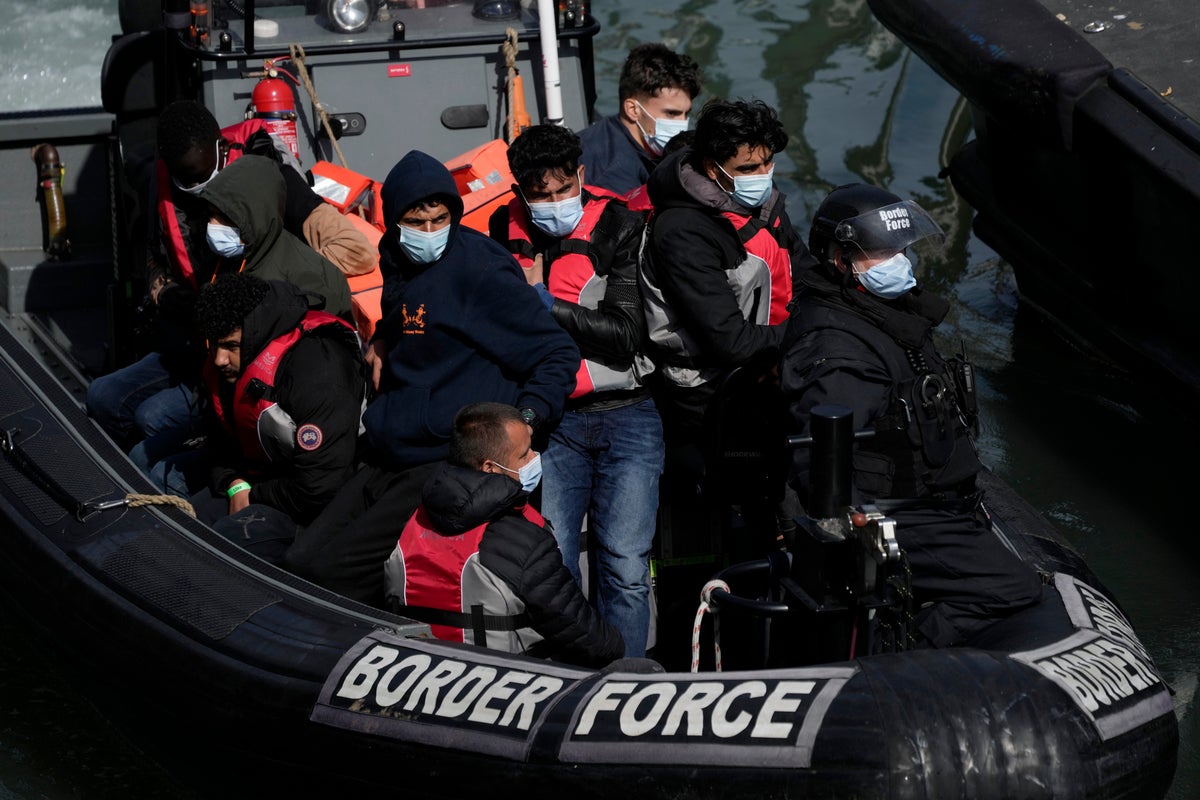
The suspected ringleader of a network that smuggled as many as 10,000 people on small boats across the English Channel to Britain has been arrested along with 38 others in a vast police operation across Europe.
In addition to the arrests, authorities said Wednesday that police found 135 boats in places including a German farmhouse and Dutch warehouses, more than 1,000 life jackets, outboard engines, packs of paddles and cash used for the smuggling.
“We believe it is the largest operation of its type against this threat,” Matt Rivers of the U.K. National Crime Agency told a news conference. “I hope it sends a message."
Five countries and the EU's police and justice agencies coordinated on the operation, which led to 18 arrests in Germany, nine in France, six in Britain and six in the Netherlands. The operation is ongoing.
The suspected ringleader is a 26-year-old Iranian Kurd, Rivers said. No other details were immediately released.
Rivers predicted a drop in the number of Channel crossings as a result, even though years of increasingly tough measures by British and French police have done little to deter people determined to attempt the risky journey to get to the U.K.
More than 28,000 people fleeing conflict or crushing poverty in Afghanistan, Sudan, Somalia, Iraq or elsewhere reached Britain by way of the Channel last year, many in dinghies and other fragile craft traversing one of the world's biggest shipping lanes. That was up from 8,500 in 2020.
Dozens have died while attempting the crossing, including 27 people from a packed boat that capsized in November. The network dismantled in this week's police operation is believed to be unconnected to the one behind the November sinking, officials said.
Smugglers charge between 2,500 euros and 10,000 euros per person to help people cross into Britain, in a business that generated an estimated 60 million euros in revenue last year, according to Jean-Philippe Lecouffe, deputy executive director of European police agency Europol.
“This deadly business is highly profitable,” he said.
The ringleader arrested in London is accused of organizing a network that stretched from Turkey across to the U.K. He is now facing possible extradition to Belgium.
Investigators say the network built an entire logistical supply chain: It acquired Turkish-made or Chinese-made boats as well as engines and life jackets online in Germany and the Netherlands, then transported them to points of departure along the French and Belgian coasts.
Christian Bagung, prosecutor from the German city of Osnabruek, called the operation a “major step forward in fighting smuggler gangs who aim at gaining profits from the needs of people."
Migrants have long used northern France as a launching point to reach Britain, a destination favored by many for reasons of language or family ties, or because they are told it's easier to get asylum or find work without immigration papers in Britain than on the continent.







